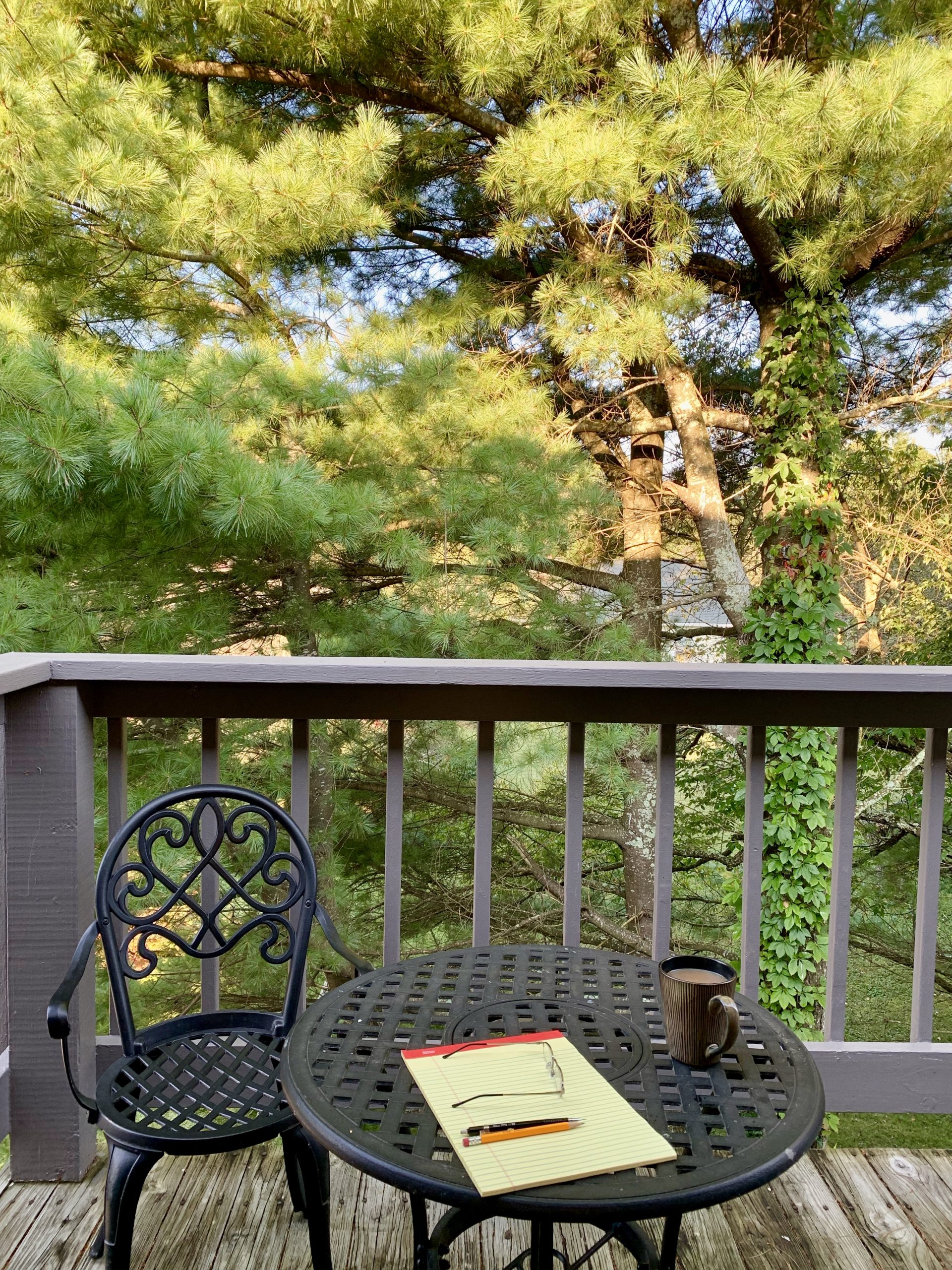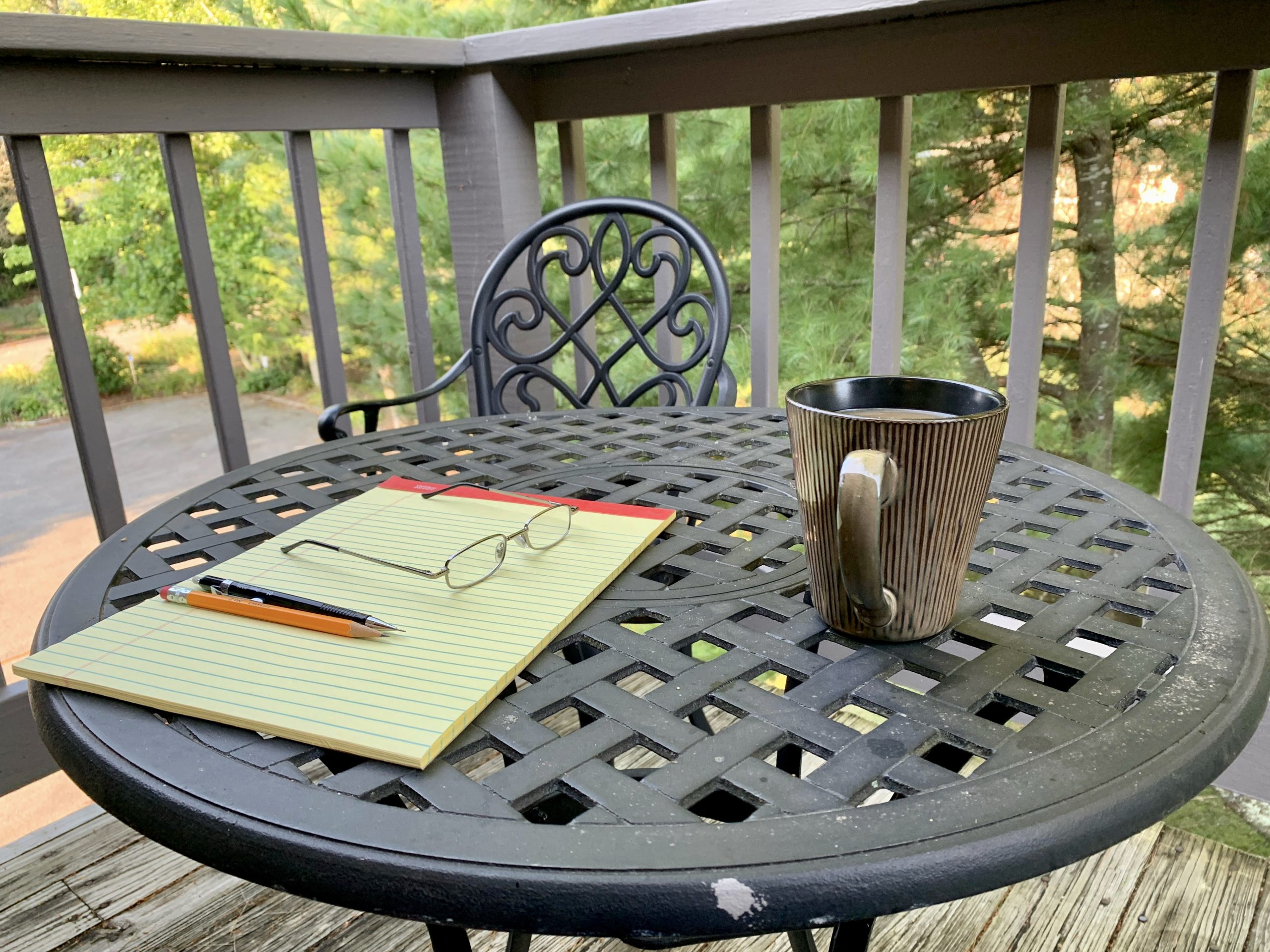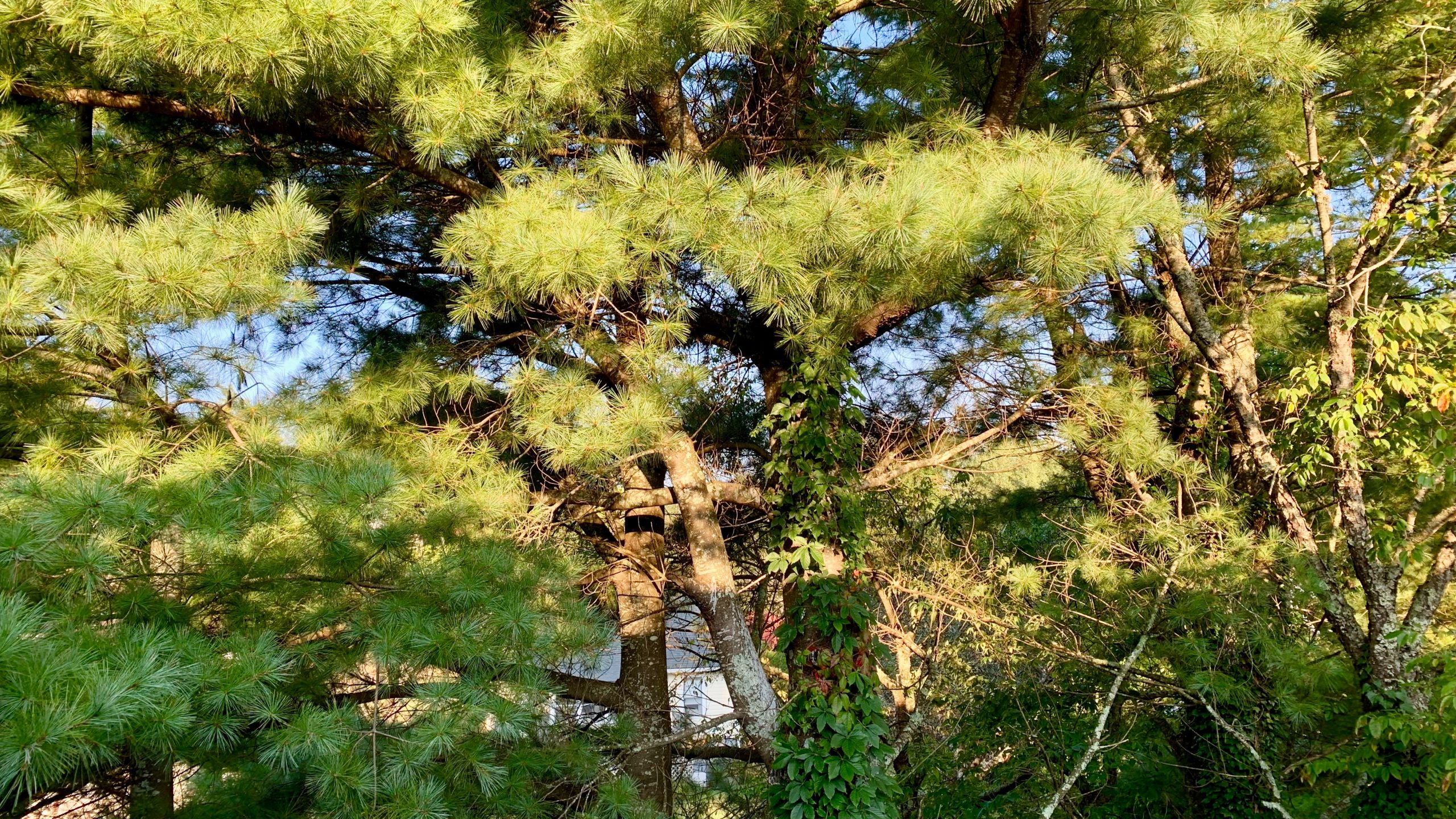Story and images by Ken Billett
The porch was, well, just a porch. Nothing special or significant about this porch. Made of wood with a waist-high railing, the porch measured about six feet by twelve feet. A fairly standard porch attached to a fairly standard apartment-style condominium.
Not much of a view from the porch, but the trees, almost close enough to touch, were pretty. Full and green. A combination of slender pines and a few birches native to this part of North Carolina. Without a view of the mountains, the trees provided a wall, a barrier, to our immediate surroundings. Past the wall of trees were neighborhoods, roadways, and downtown Blowing Rock, North Carolina, a charming little tourist village nestled along the Blue Ridge Parkway.
The trees were a reminder, a metaphor, if you will, about the barriers we continue to put up in our lives and around our world. Barriers that prevent us from seeing another person’s point of view, robbing us of understanding and empathy, and, ultimately, missing the big picture.



Not Seeing the Forest
Can’t see the forest for the trees is a common idiom used mostly in the business world, but one that certainly applies to everyday life, and, in particular, to our current circumstances.
For those of you unfamiliar with this saying, according to several online sources, can’t see the forest for the trees means someone too involved in the details of a problem to look at the situation as a whole. At one time or another, we’ve all been guilty of allowing the minutiae of an issue to become our singular focus.
Not being able to see the forest for the trees symbolizes our current political and social climate in which we argue, we protest, we cancel, and we complain. Caught up in being right, and making sure everyone else is wrong, feeds an endless cycle of anger and blame. There’s no consideration of another person’s perspective or feelings. As a result, we’ve lost sight of what matters most: caring, concern for others, and compassion (see A Little Passion in Our Compassion).
In this special edition of Get Out of Town, I discuss our experience exploring the beauty of North Carolina’s western mountains while keeping in mind how strictly focusing on the trees—mask mandates, social distancing, COVID compliance—clouds our thinking and how well we see that big picture forest.
Note: A complementary piece, Carolina in My Mind, will appear in an upcoming StoryBoard Memphis Quarterly and details the places and sights we enjoyed during our Carolina Adventure.
Pandemic Travels
While not our first trip of 2021, last September’s excursion through parts of western North Carolina was both enjoyable and eye-opening. Vicki and I explored an area we had never visited , contemplating return trips and potential landing spots for our post-retirement years. Yes, retirement is fast-approaching, yet we have no idea where we’ll be in five years.
We also noted how North Carolina, specifically this part of North Carolina, dealt with the pandemic and all its associated issues: both the forests and the trees.
During the past two years, we’ve traveled, mostly by car, and experienced how different parts of the South handled the pandemic. From Paducah, Kentucky, (Third Times Still a Charm) to the Mississippi Delta (Delta Dispatches), to St. Louis (Rollin Stone Weekend), and down to my home state of Florida, we’ve stayed aware of our surroundings, tried to remain in our own personal bubble, yet still enjoy all that our destinations had to offer.
In a way, we saw our world in two separate parts. The forest, or our country’s continuing battle against a deadly pandemic, and the trees, mask requirements, social distancing, vaccines, personal choices, family needs, and the ways people coped—right or wrong, good and bad—with everything thrown at them.
Tarheels Mostly Get It Right
Prior to our trip, Vicki, the planner, ordered a North Carolina state travel guide. Typical of most state guides, this printed guidebook—yes, we’re old school, and we still use paper maps and brochures when we travel, although I refuse to carry either one on my person while we explore—contained the must-see locales, things to do, where to stay, and gorgeous pictures.
One of the first things I noticed in the guidebook was the repeated references to state guidelines for a healthy environment while visiting North Carolina. These included promises made by businesses for guest health and safety.
The importance of the forest over the trees impressed us.
On the Ground
Once we left the protective bubble of Charlotte Douglas International Airport, we experienced western North Carolina in all its early fall beauty and the varying degrees of COVID compliance.
In Morganton, we ate and drank, mostly outside—the weather was gorgeous for our entire trip—while indoor mask requirements fluctuated from required to non-existent. The people of Morganton were pretty laid-back, mostly open-minded, and accommodating. The manager of one downtown spot we frequented used a sandwich board to express his frustration with vaccine skeptics.

When we arrived in Blowing Rock, North Carolina, the atmosphere was decidedly different. Blowing Rock caters to outdoor sightseers, mountain hikers, and skiers. A bit more upscale than Morganton, downtown Blowing Rock has beautiful old buildings with plenty to see and do—shopping and browsing—along with wonderful dining choices—preferably outside on a patio.
All businesses required masks indoors and some required masks outdoors, as well. We saw most folks complying with the rules and wearing masks.
We were pleased with Blowing Rock’s response to the pandemic, but learned that a recently proposed vaccination or testing requirement for town workers caused a division within the town’s council with one councilwoman resigning in protest.
Sad. Sad that we can’t have disagreements nowadays without histrionics. Folks not understanding, or caring, about how selfishness can impact their town’s livelihood.
There’s a reason we focus on the forest. The forest impacts all of us.
In the Mountains
The last stop on our adventure was in Boone, a college town just north of Blowing Rock and situated in the Blue Ridge Mountains. During our half-a-day visit, we saw mixed compliance regarding COVID safety. Most stores, shops, and eateries had mask requirements prominently displayed. Whether people followed those requirements was hit or miss.
One microbrewery in downtown Boone clearly stated their position on pandemic safety with a sign posted on the front door: No mask, no entry. No compliance while inside, you’ll be asked to leave. If necessary, the police will be called.
Those folks understood the importance of the forest.


Sometimes the Trees Matter
Our focus on the forest can, at times, prevent us from remembering the trees. It’s important to understand that for some people, the trees—those personal choices and personal circumstances—should be acknowledged. Not everyone has the convenience of sitting back while pundits blather on about protocols or endlessly debate the effectiveness of masks.
We forget that behind that counter, behind that bar, behind a cash register, stands a fellow human being, a real person with real difficulties. A worker, an associate, a store manager, a business owner—all of whom are simply doing their jobs.
No one wants to wear a mask. No one wants to social distance. No one wants to not see their grandchildren and loved ones for almost two years.
Sometimes the trees matter. We’ve all been placed in an extraordinary situation under incredible pressure and stress. Everyone is frustrated, worried, or even scared. Everyone has been inconvenienced. Many of us, myself included, have lost someone to COVID-19.
We somehow have to put aside our own worries and concerns and do the right thing.
For a few days last September, that wooden porch served as a temporary haven, a buffer against the uncertainty of the pandemic. A place for me to reflect on where we’ve been and where we have yet to go. A reminder that barriers still exist throughout our society, which must be removed.
Forest or the trees? At times, both are important.
Ken Billett has called Memphis home for more than thirty years. A freelance writer, fiction author, and nationally known advocate for skin cancer prevention and research, Ken volunteers his time at the Blues Hall of Fame on South Main in downtown Memphis. When not tending to his flowers, Ken and his wife Vicki travel extensively. StoryBoard Memphis is proud to present Ken’s columns Time Capsules and Get out of Town as ongoing features here on StoryBoard.

